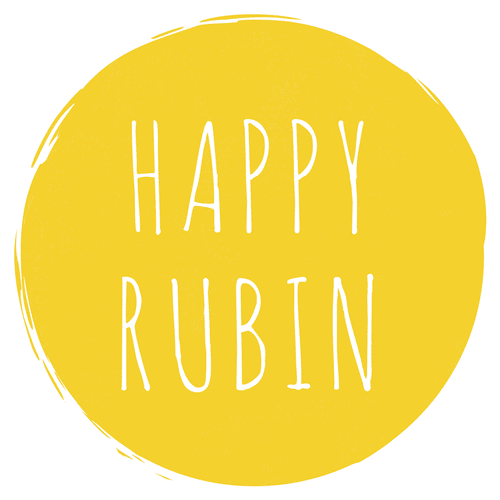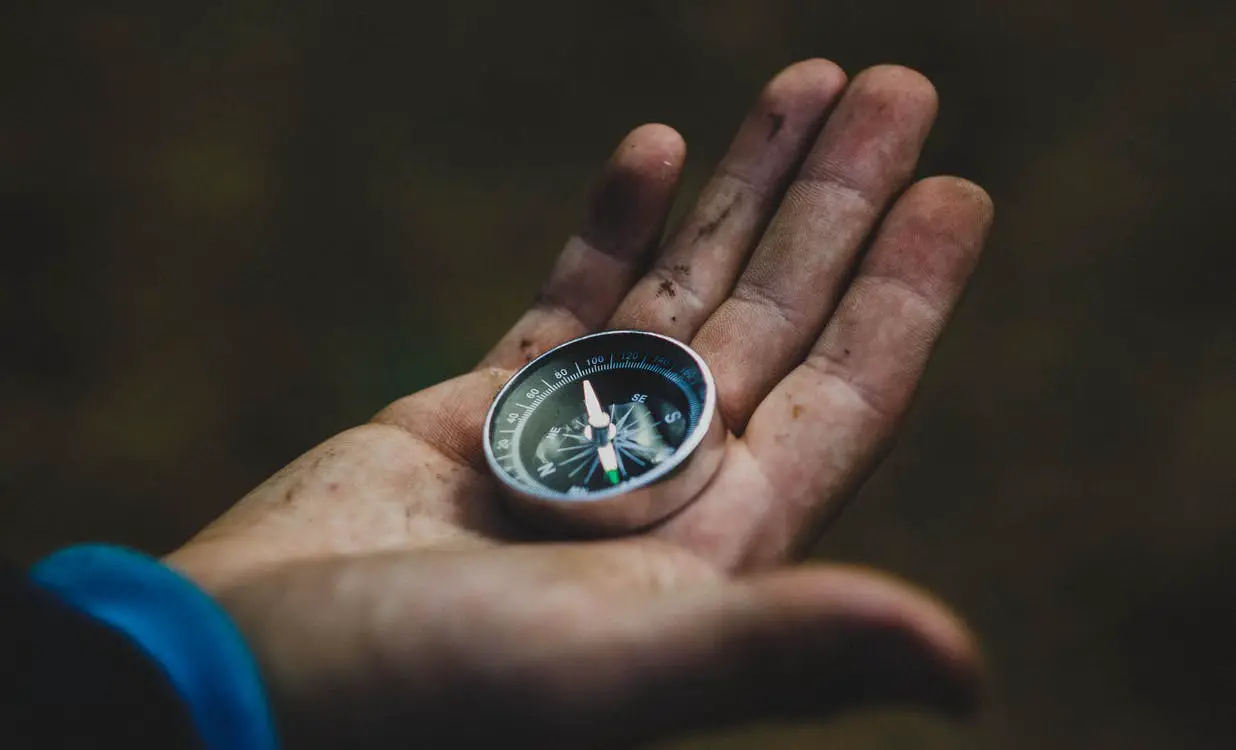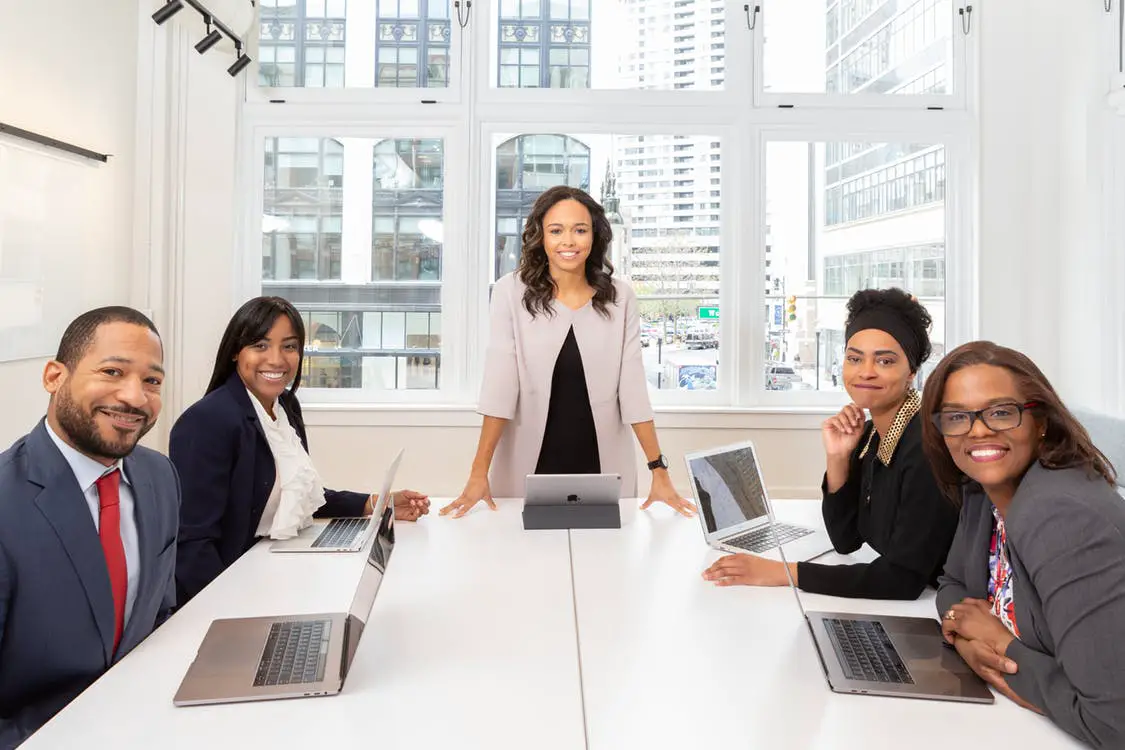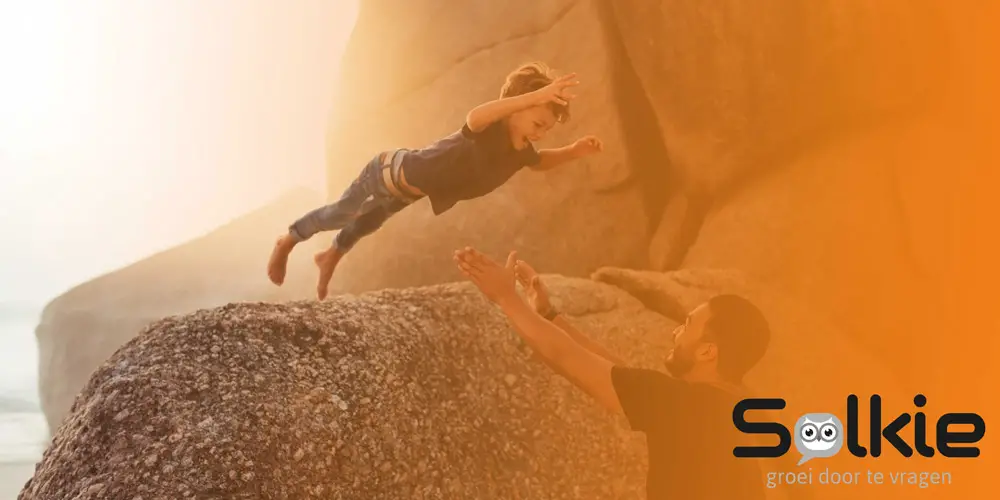![How To Deal With Sensory Overload [9 Tips For Overstimulation]](https://happyrubin.com/wp-content/uploads/2019/12/ik-ben-overprikkeld-150x150.jpg)
Listening: 28 tips to optimize your listening skills [List]
![Listening: 28 tips to optimize your listening skills [List]](https://happyrubin.com/wp-content/uploads/2016/08/luistervaardigheden-tips-leren.jpeg)
In this article you will learn how to get better at (actively) listening to someone else. Listening skills can come in handy when building a connection with other people. So listen carefully to these tips and rules to become the best listener!
Contents of this page:
Better listening skills? The #1 tip is: be quiet, let the conversation finish and don’t give advice too quickly
What is the most important tip if you want to become good at listening? To shut up. Because it’s all well and good, that you’ve learned all kinds of empathy tips and that you might be asking nice NLP questions … but sometimes you just have to keep your mouth shut.
I regularly meet with a number of friends for a mastermind group. During such a meeting, everyone can take turns to tell how they are doing for 15 minutes. What we all experienced the most delicate aspect of the evening is that we can fine work this out .
Knowledge wants a voice. Wisdom wants to listen. A foolish man thinks: I already know that. That way he prevents him from discovering new things. A wise man thinks: I don’t know the whole story yet. He opens himself to even more wisdom.
And what are my friends and I doing while that one person is finishing up? We listen, nod, show understanding, encourage the talking person to express everything and leave our advice and own experiences out until the other person has finished talking. This is the greatest thing you can do to improve your listening skills: less is more.
The biggest communication problem is that we are not listening in order to understand. We’re listening to answer …
– Stephen R. Covey
28 extra listening tips to optimize your listening skills
Below you will find a whole list of extra listening tips. By the way, the most important tip is at the bottom …
- Never interrupt people when they are talking. People want to vent and that requires a listening ear. Master listeners never interrupt (nor allow themselves to be interrupted).
- Master listeners pause for two seconds before answering. This ensures that the other person has spoken. Your face absorbs and reacts … and only then do you answer.
- Listen with compassion : you then listen with only one goal: to help the other to empty his heart. This means, among other things, that you keep your mouth closed so that the other person can fully express themselves. Just listen carefully until everything is gone.
- Don’t judge what the other is saying. This is not only an essential listening skill, it is also a wonderful gift that you give to the other. This means, among other things, that you do not confuse the other person with the story about that person, i.e. the dream about who the other person is. Interpretation is one of the biggest listening errors.
- If someone is telling a story to a group and gets interrupted, you are the first to ask them to continue with the story.
- Continue to ask. Encourage the other to say more, for example about a problem. Let the other person talk more by always giving a short, acknowledging response: “Aha, mmm, yes, is that really true? Oh, seriously? Hah that’s so cool! That’s really interesting! I see what you mean. How nice, tell me more about it. I would like to hear about that. ” Bonus: the more the other says, the more you can pay attention to patterns so that you can make rapport with them.
- Never try to ‘fix’, restore, or stop making the other person feel what he / she is feeling. And do not pretend you are ‘the one who knows’ or ‘the enlightened one’.
- What do you do then? You have an attitude of tolerance , empathy and compassion for the other person: ‘Are you confused? Then just be confused. Are you afraid? Just be scared. Are you burning with anger? Let’s let that anger burn and find out what happens. ‘
- Listen to understand, not respond. And certainly not to respond with secondhand answers you’ve memorized that have nothing to do with the immediate first-hand experience in the here and now.
- Do not communicate from your conditioning, or mind, because you cannot make a connection with that, but above all you interpret. Do not judge too quickly and do not interpret or connect the words with associations you have gained in the past. What does the other really mean?
- Listen with your whole body and therefore also feel the energy of the other.
- Ask how the problem can be solved.
- Only give your advice or opinion when asked.
- When people ask you a question, ask them why they are asking you that question and ask them to clarify what they mean.
- Don’t listen with the intention of confirming your own beliefs, but to find out.
- Adopt a receptive attitude in which you really want to listen and genuinely understand what the other person is saying.
- Ask a deeper question.
- Ask a reflection question.
- Remember what was said and talk about it later. This can also be used for recurring humor to make the coaching session a bit brighter.
- Paraphrase: Summarize the client’s message in your own words “I want to make sure I understood you correctly. What I hear you say is… ”
- Paraphrase also on feelings: “Yes I understand that … I understand that you … feel.”
- From now on, if you catch yourself speaking from your own perspective, say sorry and confess that you were not concerned with understanding the other person.
- Build from the words the client uses. This is called ‘echoing’: precise reflection, both words and physiology. This is not the same as active listening (paraphrasing, etc.). Echoing is often better than paraphrasing for rapportto prevent wrongdoing. By echoing you automatically also speak in the language of the client. Do this especially with certain keywords and words that they repeat often. These are their personal trance words. When the client says, “I fell in love with my job,” you echo that sentence in exactly the same order, voice, language, and gestures. Then they don’t have to decipher what you say. This way you create a deep bond with the client. If you want to lead the conversation further, for example by sharing your experience on the subject of ‘work’, do that in their words to enchant them more and more.
- ‘Utilization’ is an NLP technique that is indispensable for listening skills. Listen and use. This is especially interesting at the beginning of a conversation. See or hear what is going on in that person at that moment and respond to it. Notice things that happen in the client’s experience and use them directly as the first topic of conversation.
- Listening empathetically:
1. When echoing what the client says: “You have a problem with your boss.” Paraphrasing: “Do I understand that you have a difference of opinion with your boss?”
2. Naming emotion: “You feel frustrated.”
3. Combine the two: “You feel frustrated with school.”
4. Reflect further with statements that read between the lines: you think that … - You can also give non-verbal recognition: nod your head, match your facial expressions with what is being told, open and relaxed body expression, eye contact, etc.
- Listen with your whole body and therefore also feel the energy of the other.
- One of the biggest listening mistakes is being absent. Put yourself in a meditative – so alert – state of mind. You do this by always following your breath when you notice that worrying thoughts arise during your conversation. This acts as a pattern break for the brooding. Do this every time out if there is distracting thoughts. And when you get home, meditate more often so that you can more easily connect with the here and now.
Have an alert, meditative, attentive state of mind. It’s a feeling that seems to say, “I’m here for you.” “I heard you say you {suffer} and that’s why I’m here for you.” “This is a happy moment.” “You’re right,” knowing that everyone is always right because there is no absolute truth.
Listening to another’s soul in a state of openness and discovery can be about the greatest service one person can render to another.
– Douglas V. SteereThe most beautiful gift we can give to another is our presence.
– Thich Nhat Hanh
Another essential aspect of being a good listener is ignoring yourself …
… See the other person. Don’t mind yourself. Or rather: the image of yourself. If you are not properly listening to someone, you are meanwhile listening to a completely different ‘person’.
That person, or personality, then says the following: ‘Do I look cool now? Doesn’t my breath smell? What does the other think of me? ‘ A little narcissistic, don’t you think?
Not surprising that I am a bad listener. I am half with my attention to the other person, and half with my attention to that little personality of mine.
We also call that small personality the ego. The purpose of that personality is to harm relationships and tasks as much as possible. It takes all the attention. This is easily solved: watch the other. Not on yourself.
You cannot watch yourself because you are already yourself. The image of yourself that you constantly pay attention to does not actually exist at all. So pay full attention to the other person.
Exercise: learn to listen better and deeper
- Get an exercise partner.
- Acknowledge the practice partner you are with and ask each other if you are willing to trust each other for the next ten minutes.
- The other says that he / she can be trusted: “You can trust me.”
- The other now starts talking about something. The subject can be chosen by yourself.
- Now give the other person your undivided attention and listen with an open heart. I don’t want you to coach. I don’t want you to help. I don’t want you to comfort and embrace the other. I don’t want you to give the other person a Kleenex. I don’t want you to smile and say, “Me too, me too!” Or whatever to make yourself comfortable. All I want you to do is give your undivided attention and respect from listening without judgment.
When you talk, you are only repeating what you know. But if you listen, you could learn something new.
– Confucius
Watch the video below with extra listening skills
This was the article with all listening tips. Listening is really an art. Good luck!

![5 Best Self Care Tips For College Students [#1 Advice]](https://happyrubin.com/wp-content/uploads/2021/09/the-best-self-care-tips-for-college-students-440x264.jpg)
![How To Stick To New Year’s Resolutions: 9 Tips [Smart & Sure Ways]](https://happyrubin.com/wp-content/uploads/2019/12/tips-voor-goede-voornemens-440x264.jpg)
![How To Stop Being So Hard On Yourself [9 Great Tips]](https://happyrubin.com/wp-content/uploads/2019/12/we-moeten-zoveel-van-onszelf-en-anderen-150x150.jpg)

![19 Best Ice Breaker & Get-To-Know-Eachother Games [Fun & Simple]](https://happyrubin.com/wp-content/uploads/2018/02/leukste-ijsbrekers.jpeg)
![Becoming More Social: 41 Tips [Improving Social Skills] [List]](https://happyrubin.com/wp-content/uploads/2018/06/sociale-vaardigheden1.jpeg)
![How to start a conversation with anyone: 15 tips [Making contact]](https://happyrubin.com/wp-content/uploads/2017/08/gesprekstechnieken1.jpeg)
![372 Friend Tag Q&A Questions [Best Friend Quiz]](https://happyrubin.com/wp-content/uploads/2019/05/best-friend-tag-vragen-voorbeelden.jpg)



![Clingy & controlling behavior of partner/date [Extreme examples]](https://happyrubin.com/wp-content/uploads/2020/06/claimerig-gedrag-van-partner-eigenschappen-en-voorbeelden-150x150.jpg)

![How to recognize if a man is in love [Signals & his body language]](https://happyrubin.com/wp-content/uploads/2020/05/verliefd-gedrag-van-mannen-herkennen-150x150.jpg)


![Free will and religion / theology [Verses & Quotes on free will]](https://happyrubin.com/wp-content/uploads/2020/10/religion-on-free-will-quotes-1050x640-1-150x150.jpg)

![Dealing With Setbacks & Hardship [Lessons & Examples]](https://happyrubin.com/wp-content/uploads/2018/11/omgaan-met-tegenslag-tips-hoe-dan.jpeg)
![NLP Agreement Frame: Use these exact sentences [Examples]](https://happyrubin.com/wp-content/uploads/2020/10/agreement-frame-nlp-1125x640-1-440x264.jpeg)
![122 Best Comebacks In Any Situation [Best Examples]](https://happyrubin.com/wp-content/uploads/2020/06/beste-comebacks-technieken-tips-440x264.jpg)
![Using Hypnosis to Stop Smoking [HowTo]](https://happyrubin.com/wp-content/uploads/2020/05/stoppen-met-roken-door-hypnose-150x150.jpg)
![Presuppositions language pattern: meaning & examples [NLP]](https://happyrubin.com/wp-content/uploads/2020/04/wat-zijn-vooronderstellingen-150x150.jpg)
![Peripheral Vision: Meaning & Exercise [Essential Skill]](https://happyrubin.com/wp-content/uploads/2020/04/perifeer-zicht-trainen-tips-150x150.jpg)

![How To Start A Coaching Business [21 Smart Tips]](https://happyrubin.com/wp-content/uploads/2018/11/coachingpraktijk-starten-tips.jpeg)
![How to make dreams come true? [33 tips to realize dreams 100%]](https://happyrubin.com/wp-content/uploads/2018/05/dromen-mijlpalen.jpeg)
![How To Become Rich? 27 Millionaire Tips [Guaranteed To Work]](https://happyrubin.com/wp-content/uploads/2018/01/hoe-kan-ik-rijk-worden.jpeg)
![77 Best Online Marketing Tools [Recommendations] [Also Free]](https://happyrubin.com/wp-content/uploads/2018/08/beste-onlne-marketing-tools-tips.jpeg)
![Complete List Of Virtues & Qualities [Including Explanation]](https://happyrubin.com/wp-content/uploads/2018/12/kernkwaliteiten-uitleg.jpeg)
![Being Attentive: How Do You Do That? [Meaning & 9 Tips]](https://happyrubin.com/wp-content/uploads/2019/05/attent-zijn.jpg)
![Being Conscientious: Meaning Of This Virtue [Explained]](https://happyrubin.com/wp-content/uploads/2018/07/Consciëntieus-persoon.jpg)


![Best Books About Burn-Out [Top 10] [Update 2025]](https://happyrubin.com/wp-content/uploads/2020/06/beste-boeken-over-burnout-lijst-440x264.jpg)
![Best Self-love Books [Top 10] [Update 2025]](https://happyrubin.com/wp-content/uploads/2020/04/beste-boeken-over-zelfliefde-aanraders-440x264.jpg)
![Life changing books: 10 books that change your life [2025 Update]](https://happyrubin.com/wp-content/uploads/2020/03/levensveranderende-boeken-tips-150x150.jpg)
![Top 10 Best Books: Recommendations Per Genre [2025 Update]](https://happyrubin.com/wp-content/uploads/2019/12/best-books-per-genre-150x150.png)
![Best Books On procrastination: Must Reads [List] [2025 Update]](https://happyrubin.com/wp-content/uploads/2019/11/beste-boeken-over-uitstelgedrag-tips-150x150.jpg)
![Joe Dispenza: Events To Attend [2025 & 2026] [All Info]](https://happyrubin.com/wp-content/uploads/2020/02/joe-dispenxa-events-440x264.png)
![Best Online Study Options [Online Education Top List]](https://happyrubin.com/wp-content/uploads/2019/03/best-home-study-options-440x264.png)
![Teachable Review & Experiences 2025 [Bad Online Training Tool?]](https://happyrubin.com/wp-content/uploads/2020/02/Teachable-review-ervaringen-150x150.png)
![Audible Review, Experiences & Special Discount [Scam?]](https://happyrubin.com/wp-content/uploads/2020/01/audible-review-ervaringen-150x150.png)
![Guest Posts Wanted [Free & Always Directly Accepted]](https://happyrubin.com/wp-content/uploads/2019/05/gastbloggen-regels.jpg)
